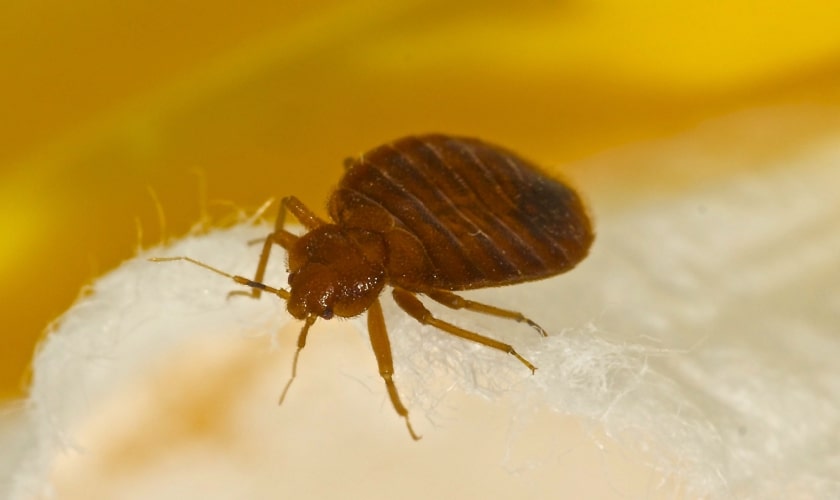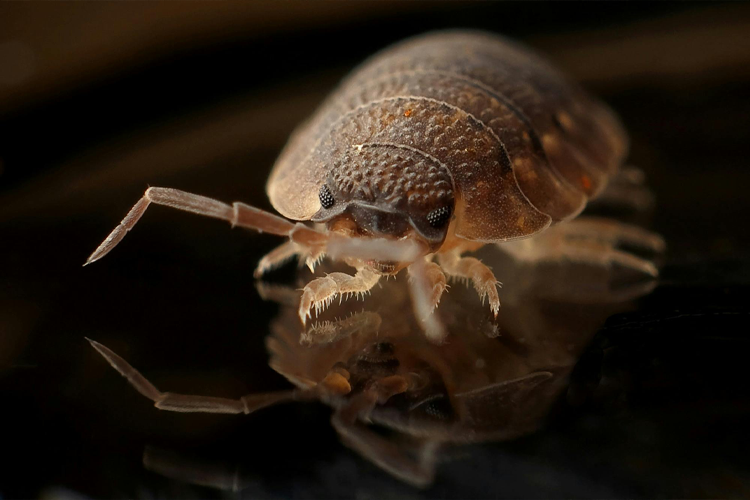Specialist Kings Pest Control Services Cincinnati OH
Specialist Kings Pest Control Services Cincinnati OH
Blog Article
A Malfunction of the Numerous Kinds Of Bug Control Solutions
In the world of bug control, a plethora of approaches exist to deal with the visibility and attend to of unwanted animals. From the standard use of chemical pesticides to more ingenious organic control services, each method uses unique benefits and constraints. As we browse via the diverse landscape of insect control solutions, comprehending the ins and outs of each technique ends up being critical in establishing the most effective training course of action. Remain tuned as we check out the nuanced globe of parasite control techniques and discover just how each kind plays an one-of-a-kind role in securing our environments.
Chemical Pesticides
Chemical chemicals are frequently used in bug control to efficiently remove a large range of insects and other parasites. These chemicals work by targeting the nervous system of the parasites, interrupting their typical functions, and ultimately causing their death. The use of chemical pesticides has been a staple in the parasite control market for decades due to their effectiveness and quick results.

Nevertheless, it is vital to use chemical pesticides with care as a result of their potential dangerous results on the setting and non-target types. Improper application or overuse of these chemicals can cause air pollution, damage to helpful pests, and resistance advancement in insect populaces. For that reason, it is critical to adhere to safety and security standards and policies when using chemical pesticides for bug control.
Biological Control Approaches
Considering the possible ecological effects and dangers connected with chemical pesticides, biological control techniques provide a more lasting approach to managing pest populations. Biological control involves the usage of all-natural adversaries, such as virus, killers, and parasites, to suppress parasite populations. This technique is often much more targeted, impacting only the specific insect types while decreasing harm to advantageous pests, people, and the environment.

One benefit of biological control is its long-lasting efficiency. Once developed, all-natural enemies can aid manage pest populations continuously without the requirement for repeated applications of pesticides. Additionally, organic ant killer control is frequently more cost-efficient and can help lower chemical resistance in insect populations over time. On the whole, organic control techniques offer a lasting and eco-friendly option to pest monitoring.

Mechanical Parasite Control
Mechanical pest control includes the physical manipulation or removal of parasites to handle their populaces effectively. This approach is usually used together with other bug control strategies for detailed insect management. One typical instance of mechanical bug control is utilizing catches to record rats or bugs. These traps can be established in critical locations where bugs are known to dwell, aiding to reduce their numbers.
One more mechanical strategy is the use of barriers such as internet, fences, or displays to obstruct parasites from going into specific locations. By physically preventing bugs from accessing a location, the possibility of invasions or damages can be substantially lowered. In addition, hand-operated techniques like handpicking bugs off structures or plants can be efficient for smaller-scale problems.
While mechanical pest control approaches can be labor-intensive, they use a non-chemical alternative that can be lasting and ecologically pleasant. By targeting bugs directly, mechanical control techniques can assist maintain parasite populaces in check without counting on chemicals.
Natural Remedies
Using all-natural remedies for pest control offers a sustainable and environment-friendly technique to taking care of bug populations without considering chemical interventions. All-natural remedies involve making use of materials stemmed from plants, minerals, or other normally happening resources to deter or get rid of bugs. Growing particular natural herbs like basil, mint, or lavender around your residential property can drive away insects due to their solid aromas. Diatomaceous planet, a powder made from fossilized helpful resources algae, can be utilized to fight insects like ants, roaches, and bed insects by dehydrating their exoskeletons.
Additionally, necessary oils such as tea tree oil or neem oil have insecticidal buildings that can successfully control parasites while being risk-free for the setting. Another natural solution is introducing advantageous pests like ladybugs or praying mantises to your yard to exploit dangerous parasites. By integrating these natural solutions into bug administration strategies, people can reduce their reliance on synthetic chemicals and advertise a much healthier, much more balanced ecological community.
Integrated Insect Monitoring
Integrated Pest Monitoring (IPM) is a comprehensive approach that combines numerous techniques to efficiently control pest populations while decreasing threats to human health and the setting. IPM involves the integration of numerous bug control techniques such as biological control, environment manipulation, modification of cultural practices, and making use of resistant crop ranges. By utilizing a combination of these strategies, IPM aims to reduce reliance on chemical pesticides, which can have negative influence on ecological communities and human health and wellness.
One key facet of IPM is the emphasis on prevention. By implementing procedures to protect against pest infestations prior to they take place, such as keeping proper sanitation and securing entry factors, the need for responsive pest control measures is lessened. Surveillance and regular assessments play a critical role in IPM, enabling for very early detection of bug issues and timely intervention.
Conclusion
In final thought, the numerous kinds of pest control options view website supply a range of alternatives for successfully taking care of pest invasions. Biological control approaches utilize natural killers to manage insects. Integrated Pest Administration integrates several methods for an alternative approach to pest control.
Chemical pesticides are commonly used in insect control to successfully eliminate a wide array of insects and other bugs.Mechanical pest control includes the physical manipulation or elimination of parasites to handle their populaces successfully (Kings pest control cincinnati oh).Using natural treatments for bug control supplies a eco-friendly and lasting approach to managing parasite populations without resorting to chemical interventions.Integrated Parasite Management (IPM) is a comprehensive approach that combines various methods to successfully manage pest populaces while reducing dangers to human wellness and the setting.In conclusion, the various kinds of parasite control solutions use an array of alternatives for properly taking care of bug invasions
Report this page